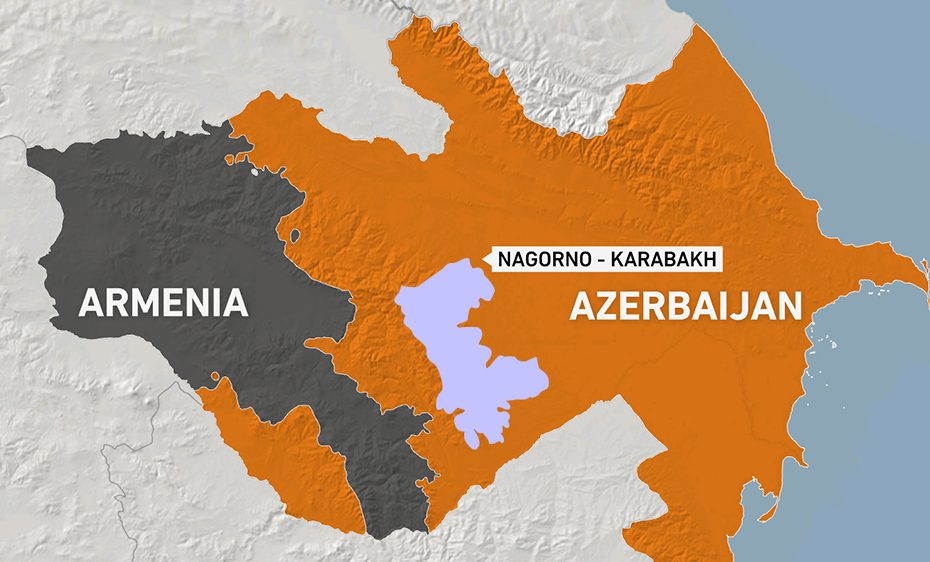TOPIC: GS PAPER-2
Why in News: Recently, tensions escalated at the border between the two countries of Azerbaijan and Armenia which resulted in the death of at least four Azerbaijani soldiers.
Nagorno-Karabakh Region
Significance of Nagorno-Karabakh
- Nagorno-Karabakh region is in the South Caucasus and is a very important corridor for pipelines transporting oil and gas to world markets.
- Pipelines shipping Caspian oil and natural gas from Azerbaijan to the world pass close to Nagorno-Karabakh.
Conflict between Armenia and Azerbaijan
- Territorial disputes and ethnic conflict between Armenia and Azerbaijan in Central Asia have impacted the Nagorno-Karabakh region in the South Caucasus for approximately four decades.
- Conflict in the Nagorno-Karabakh region began following the breakdown of the Soviet Union in the late 1980s and lasted till approximately 1994.
- Nagorno-Karabakh broke away from Azerbaijan in a conflict that broke out as the Soviet Union collapsed in 1991.
- Both Armenia and Azerbaijan claim this strategic territory of Nagorno-Karabakh. At that time, the enclave of Nagorno-Karabakh had held a referendum boycotted by Azerbaijan where the people chose independence over joining either of the two countries.
Ethnic Cleansing of 90s
- The conflict between ethnic Armenians and ethnic Azerbaijanis in Nagorno-Karabakh reached a particular low with Armenia and Azerbaijan accusing each other of having instigated ethnic cleansing.
- The situation worsened when the Nagorno-Karabakh Autonomous Oblast, an administrative unit, decided to vote to join Armenia given its large Armenian population.
- By 1992, the violence had increased and thousands of civilians had been displaced, compelling international bodies to take notice.
Ceasefire Mediated by Russia in 1994
- In May 1994, Russia mediated a ceasefire between Armenia and Azerbaijan.
- However, the conflict has continued for three decades, with instances of ceasefire violations and violence instigated from both sides.
Recent Tensions
- The border between Armenia and Azerbaijan has been tense since 2018, particularly after Azerbaijan moved troops into the area, close to its border with Georgia.
- In April 2016, the region was particularly tense because of violent fighting between the two countries in what came to be known as the Four-Day War.
- Since then, while there have been sporadic instances of flare-ups in the region, it came nowhere close to the situation in 2016.
International Reactions
Turkey released a statement saying that it would back Azerbaijan in its struggle to protect its territorial integrity. Any military escalation would draw regional powers like Turkey and Russia more deeply into the conflict, something which they do not prefer.
Way ahead
Observers believe an all-out war between Armenia and Azerbaijan is unlikely due to a number of factors. In this disputed region, there are hundreds of civilian settlements, residents of which would be directly impacted and potentially displaced if any large-scale war were to break out


